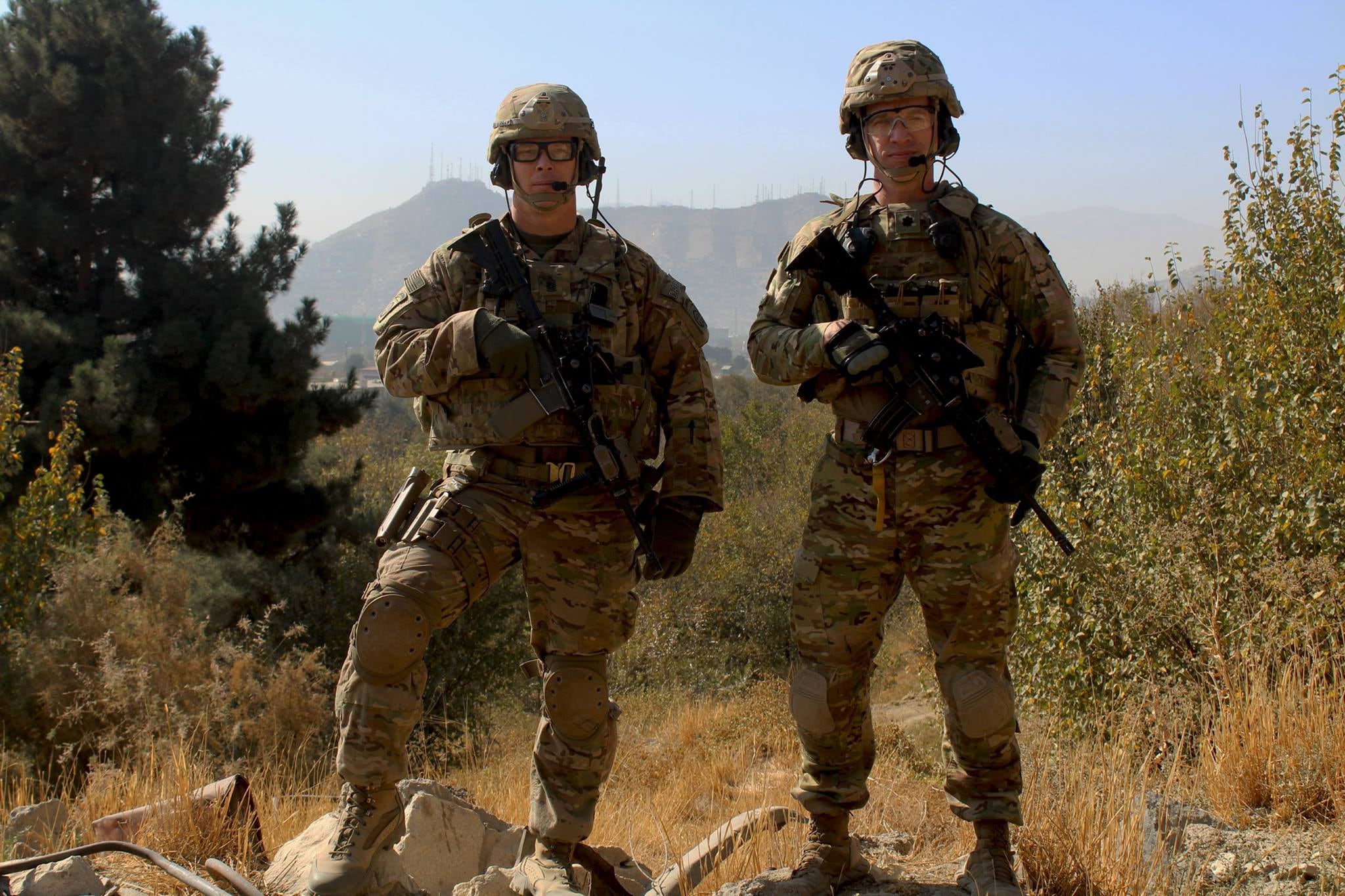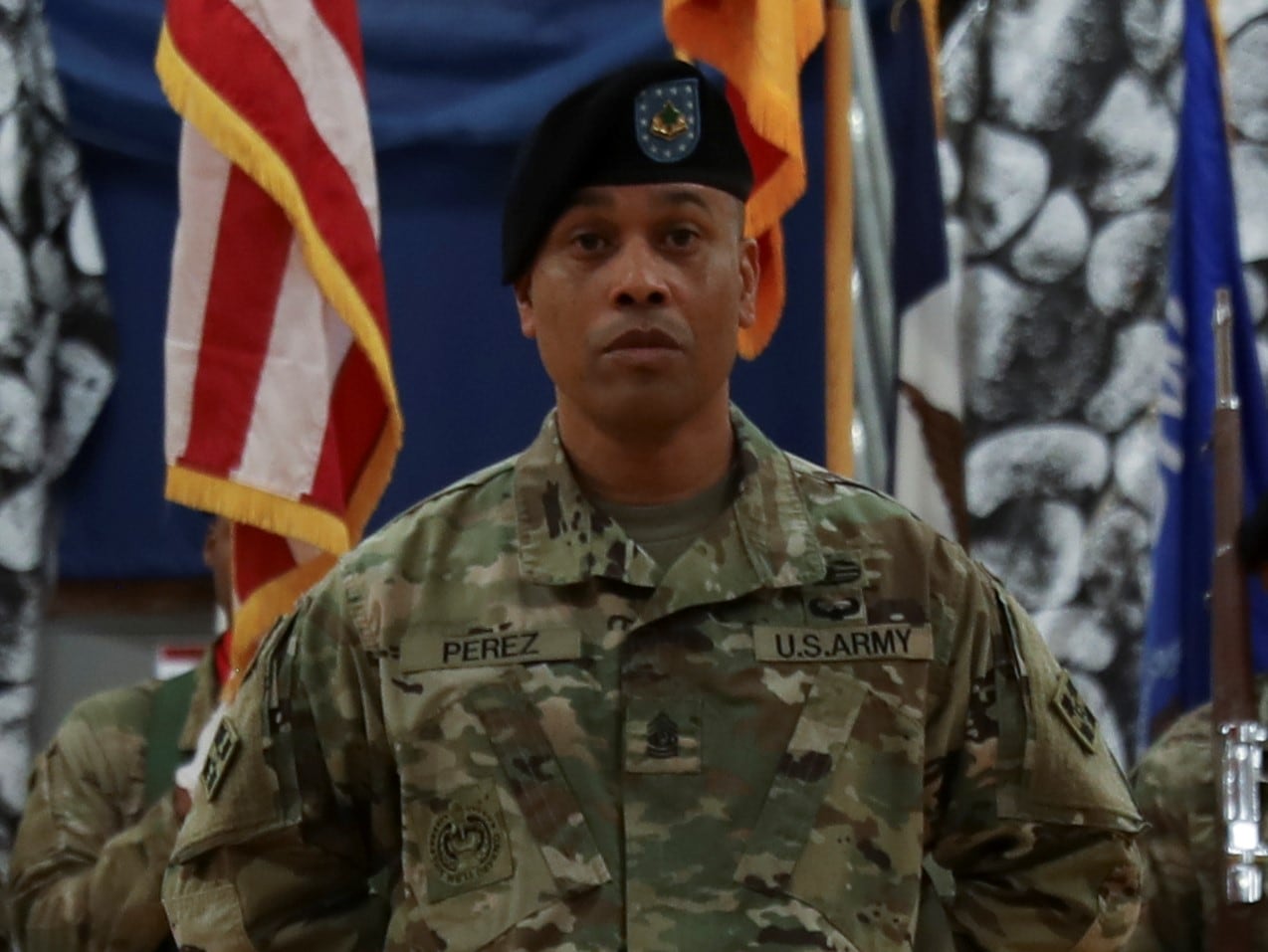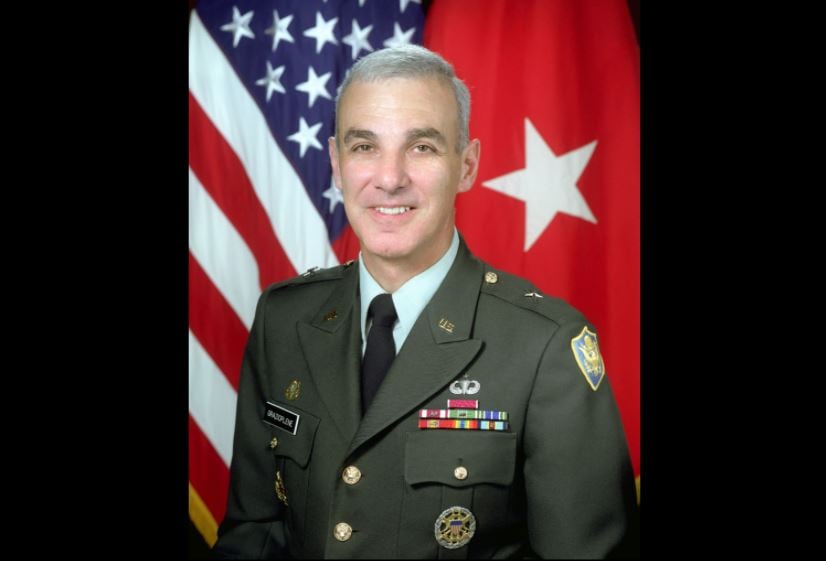A former command sergeant major at Fort Bragg, North Carolina, faces a second court-martial on sexual assault charges this October.
And this time, prosecutors say he obstructed justice by asking an officer — who he is now also charged with sexually assaulting — to destroy evidence ahead of his first court-martial, during which he was acquitted of sexually assaulting a private first class.
Clinton Murray, now a master sergeant, also faces desertion charges over a retirement that prosecutors say he obtained by forging paperwork. The faux retirement allowed him to leave the Army despite an ongoing CID investigation that ultimately led to new charges of sexual assault, extortion and fraternization.
Murray was convicted of an inappropriate relationship with the private in his first court-martial, leading to his relief and reduction in rank. But he was acquitted of the far more severe sexual assault charge.
Army Times reviewed publicly available court documents detailing Murray’s career and alleged misconduct. The documents became public when Murray sued the Army for revoking his retirement orders in July 2020, after prosecutors said he forged signatures on his discharge papers. A federal judge dismissed Murray’s suit two months later.
“We look forward to representing our client at his court-martial. He’s pled not guilty,” said John Hafemann, Murray’s lead defense attorney. “We can’t discuss the specifics of the case.”
The long and winding case started during a 2017 deployment to Afghanistan, when Murray was serving as the command sergeant major of 3rd Squadron, 73rd Cavalry Regiment, part of the 82nd Airborne Division’s 1st Brigade Combat Team, according to his enlisted record brief.
The first court-martial
Murray was a decorated leader, with a Bronze Star Medal for valor and an Army Commendation Medal for valor. The 2017 deployment was his fifth combat tour, according to the ERB.
Eight months into the deployment, Murray came under investigation for alleged inappropriate relationships with two soldiers in his unit.
Following an investigation, Murray faced a slew of charges, including maltreatment of the private first class, a charge of sexually assaulting that same soldier, charges for trying to influence the investigation and a charge of fraternization with an officer.
Army Times does not publish the names of alleged sexual assault victims unless they have chosen to speak publicly. The junior enlisted soldier did not respond to inquiries, and the officer declined to comment.
The charges went to a four-day general court-martial in January 2020.
According to the trial results, the jury convicted Murray of an inappropriate relationship with the private first class, but he was acquitted of the sexual assault and maltreatment charges. Prosecutors withdrew the fraternization charge and the obstruction charges.

Murray was sentenced to a reduction in rank to master sergeant and a formal reprimand.
During the trial, though, things took a strange turn: The officer approached prosecutors and claimed to have helped Murray destroy evidence of the sexual assault.
Charge sheets stated that “physical and forensic evidence” of alleged sexual misconduct was destroyed, but the documents did not elaborate.
In a sworn statement filed in federal court, Maj. Clifford Walters, the top prosecutor in the 82nd Airborne Division, said the officer “approached the Government and informed the trial team that [they] had personally assisted MSG Murray...in covering up evidence of the sexual assault and inappropriate relationship charges.”
Walters told the judge that the officer said “Murray asked her to destroy evidence supporting the allegations…[and the officer] admitted to having an adulterous relationship with [him].”
RELATED

The officer told prosecutors that Murray had sexually assaulted her, as well.
The Army launched an investigation into the new allegations, and court records show Murray was notified of the new inquiry in early February 2020.
The retirement that wasn’t
Despite the new law enforcement investigation, Murray continued to pursue a medical retirement for back injuries that plagued him throughout his career, according to court records.
However, soldiers under investigation cannot retire until the investigation or subsequent criminal charges are resolved.
Nonetheless, Murray received retirement orders that the Army said were executed in error.
After Murray received those orders, he “forged multiple signatures in order to clear his unit and proceed with retirement,” according to the affidavit from Walters, the 82nd’s chief of military justice.
Army officials discovered the forgery, prosecutors said, when Murray misspelled the name of his first sergeant in the paperwork. Army Times reviewed the documents and verified the misspelling.
They also suggested Murray made an “unauthorized amendment” to his leave form, changing its type from ordinary leave to “terminal” leave, according to a memorandum filed in federal court.
The documents of dubious authenticity allowed Murray to retire briefly — even drawing his pension for three weeks — despite his flagged file, Walters said in the sworn statement.
“As a result [of the documents], MSG Murray was allowed to retire,” said Walters. “Upon recognizing what [he] had done, the U.S. Army revoked MSG Murray’s retirement orders and discontinued his retirement pay.”
Murray’s battalion commander, Lt. Col. Todd Sunday, agreed with that assessment in an email included in the court filings.
RELATED

“We learned today that MSG Murray is no longer in the Army even though he was Flagged and had an ongoing CID investigation for an offense that could result in punitive discharge,” said Sunday. “Apparently, he was able to clear through a combination of administrative errors and forgery of signatures on his clearing paperwork.”
Murray’s company commander ordered him to return to duty in July 2020 after the Army rescinded the retirement order and his DD-214.
When the former sergeant major didn’t report — and tried to sue the Army instead — he was declared absent without leave and arrested by civilian authorities, according to court records.
Blackmail and cover-ups
After being recalled to active duty, Murray was charged with sexually blackmailing the officer with whom he was previously accused of fraternizing during the 2017 deployment.
Prosecutors accused Murray of sexual assault and extortion for coercing the officer to have sex with him and attempting to obtain nude photos “by threatening to divulge their past sexual relationship” to the officer’s spouse and chain of command.
The crimes occurred in May 2018, according to the charge sheet.
An additional charge sheet for Murray from January added a so-called “revenge porn” charge for sharing intimate images of an unnamed woman without her consent in June 2018. The Army is re-charging Murray for the 2017 fraternization in Afghanistan, too.
Prosecutors also charged Murray with asking a soldier to destroy evidence of the previously acquitted sexual assault against the private first class while still deployed.
Walters said in the federal lawsuit that Murray asked the officer — with whom he allegedly had an affair — to cover up evidence of the alleged assault.
The cover-up occurred near Kabul during Murray’s last four days before leaving Afghanistan in December 2017, according to the charge sheet.
On top of everything else, Murray also faces UCMJ action for desertion and false retirement, according to the charge sheet.
The new court-martial will raise questions about how Murray was acquitted of the initial sexual assault-related charges against the private first class, though he can’t face the same criminal charges twice.
The trial will also raise questions about the administrative errors and lack of controls that allowed him to erroneously retire despite the investigation.
“Charges are merely accusations and the accused is presumed innocent until proven guilty,” said Lt. Col. Mike Burns, an 82nd Airborne Division spokesperson.
The trial is tentatively scheduled to begin Oct. 11.
Davis Winkie covers the Army for Military Times. He studied history at Vanderbilt and UNC-Chapel Hill, and served five years in the Army Guard. His investigations earned the Society of Professional Journalists' 2023 Sunshine Award and consecutive Military Reporters and Editors honors, among others. Davis was also a 2022 Livingston Awards finalist.









